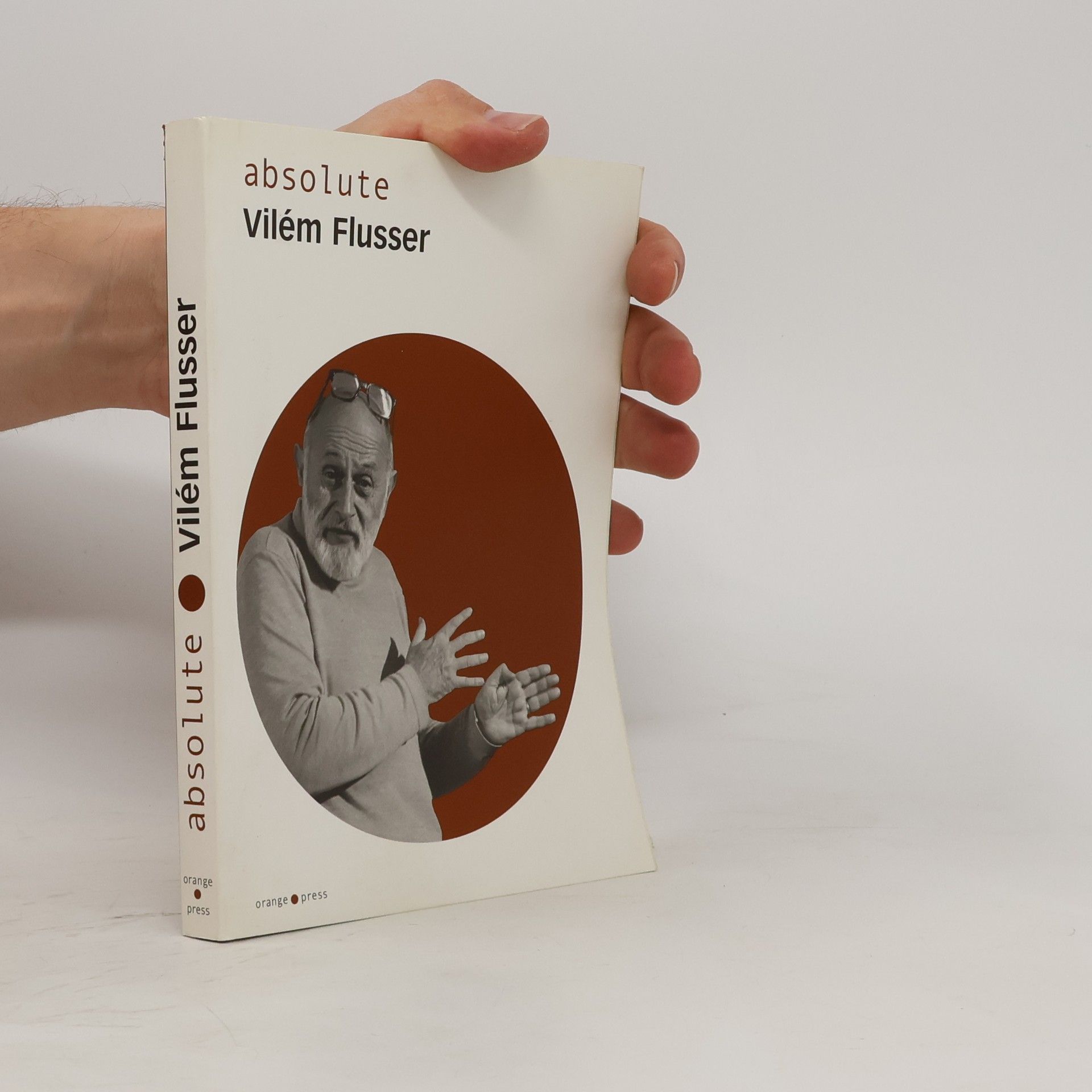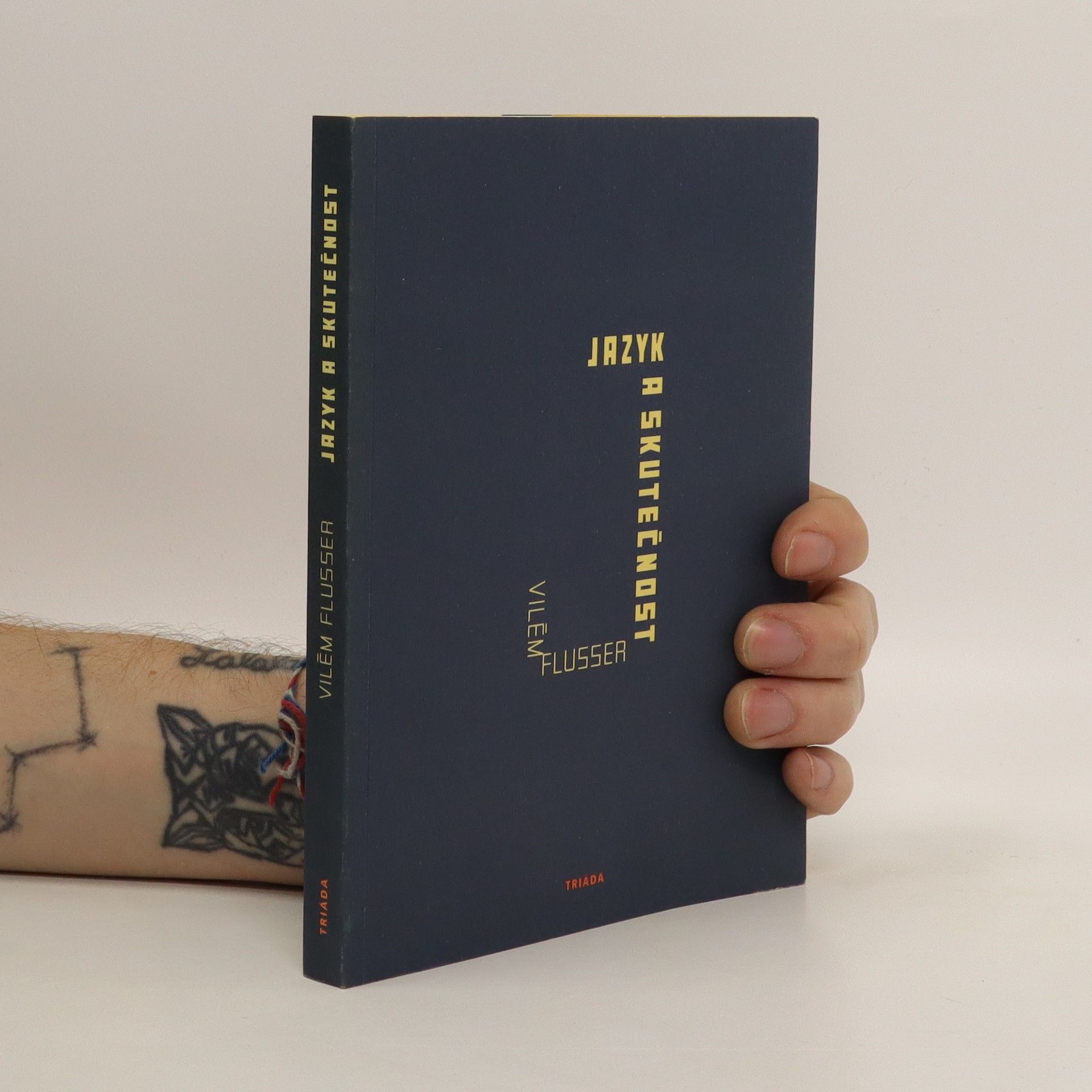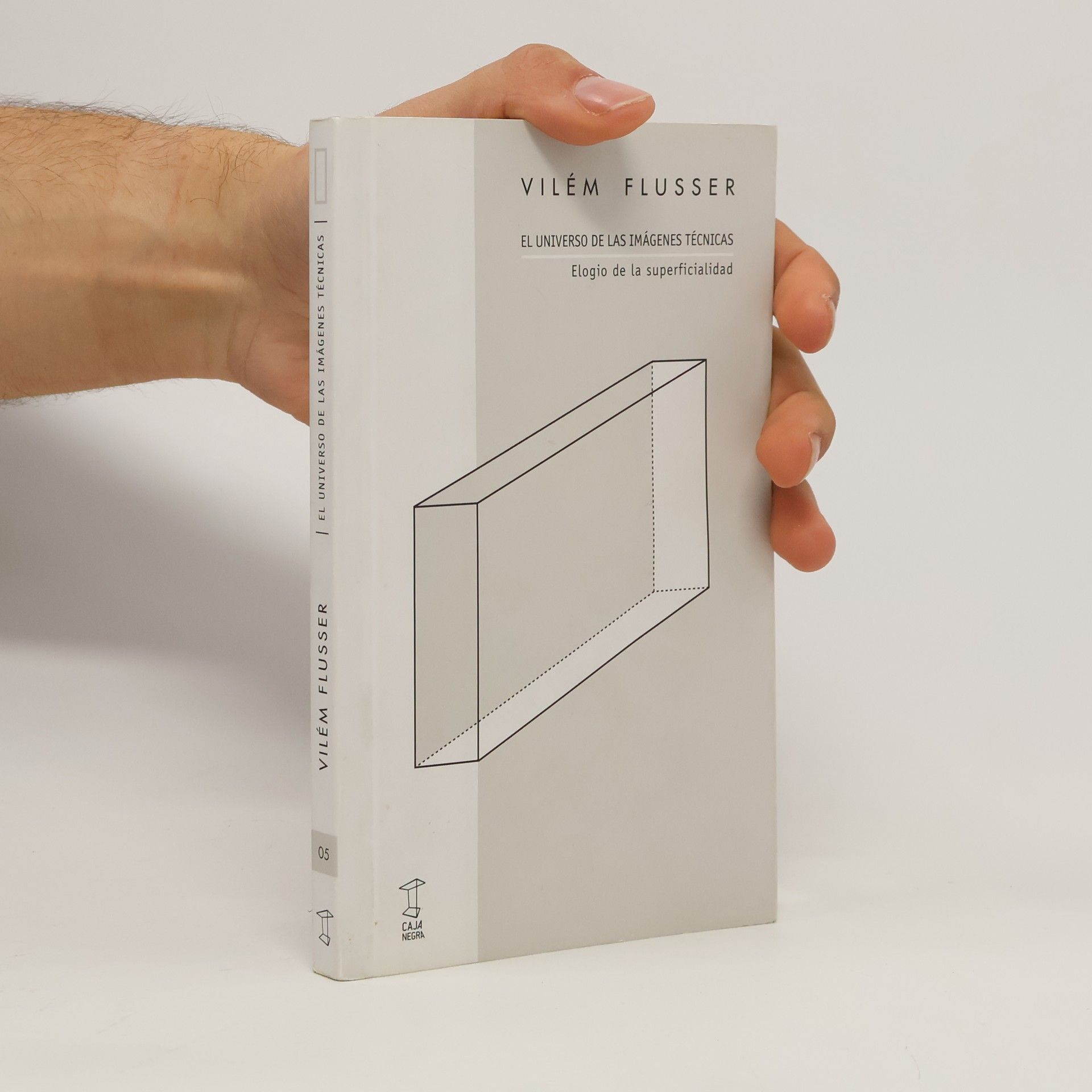"Two years after his Vampyroteuthis Infernalis, the philosopher Vilém Flusser engaged in another thought experiment: a collection of twenty-two 'scenarios for the future' to be produced as computer-generated media, or technical images, that would break the imaginative logjam in conceiving the social, political, and economic future of the universe. What If? is not just an 'impossible journey' to which Flusser invites us in the first scenario; it functions also as a distorting mirror held up to humanity. Flusser's disarming scenarios of an Anthropocene fraught with nightmares offer new visions that range from the scientific to the fantastic to the playful and whimsical. Each essay reflects our present sense of understanding the world, considering the exploitation of nature and the dangers of global warming, overpopulation, and blind reliance on the promises of scientific knowledge and invention. What If? offers insight into the radical futures of a slipstream Anthropocene that have much to do with speculative fiction, with Flusser's concept of design as 'crafty' or slippery, and with art and the immense creative potential of failure versus reasonable, 'good' computing or calculability. As such, the book is both a warning and a nudge to imagine what we may yet become and be"-- Provided by publisher
Vilém Flusser Boeken
Vilém Flusser was een filosoof wiens vroege werk zich bezighield met het denken van Martin Heidegger, beïnvloed door existentialisme en fenomenologie. Fenomenologie zou later een belangrijke rol spelen in zijn overgang naar de filosofie van communicatie en artistieke productie. Flusser stelde een dichotomie in de geschiedenis voor tussen de "verering van beelden" en de "verering van teksten", waarbij hij de resulterende tendensen naar afgoderij en "tekstolatrie" onderzocht. Zijn geschriften, die meerdere talen omvatten, duiken diep in theoretische benaderingen van kunst en media.

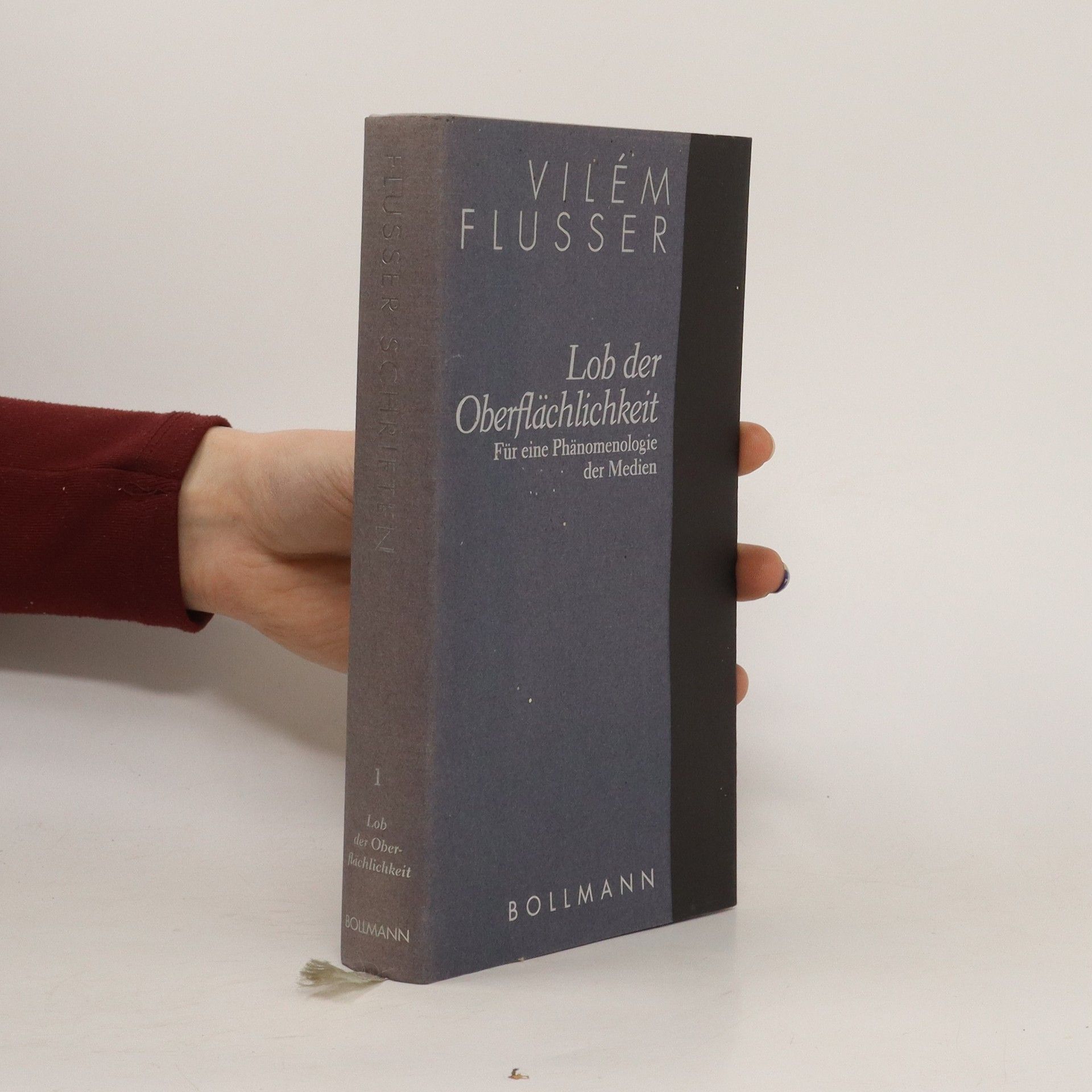
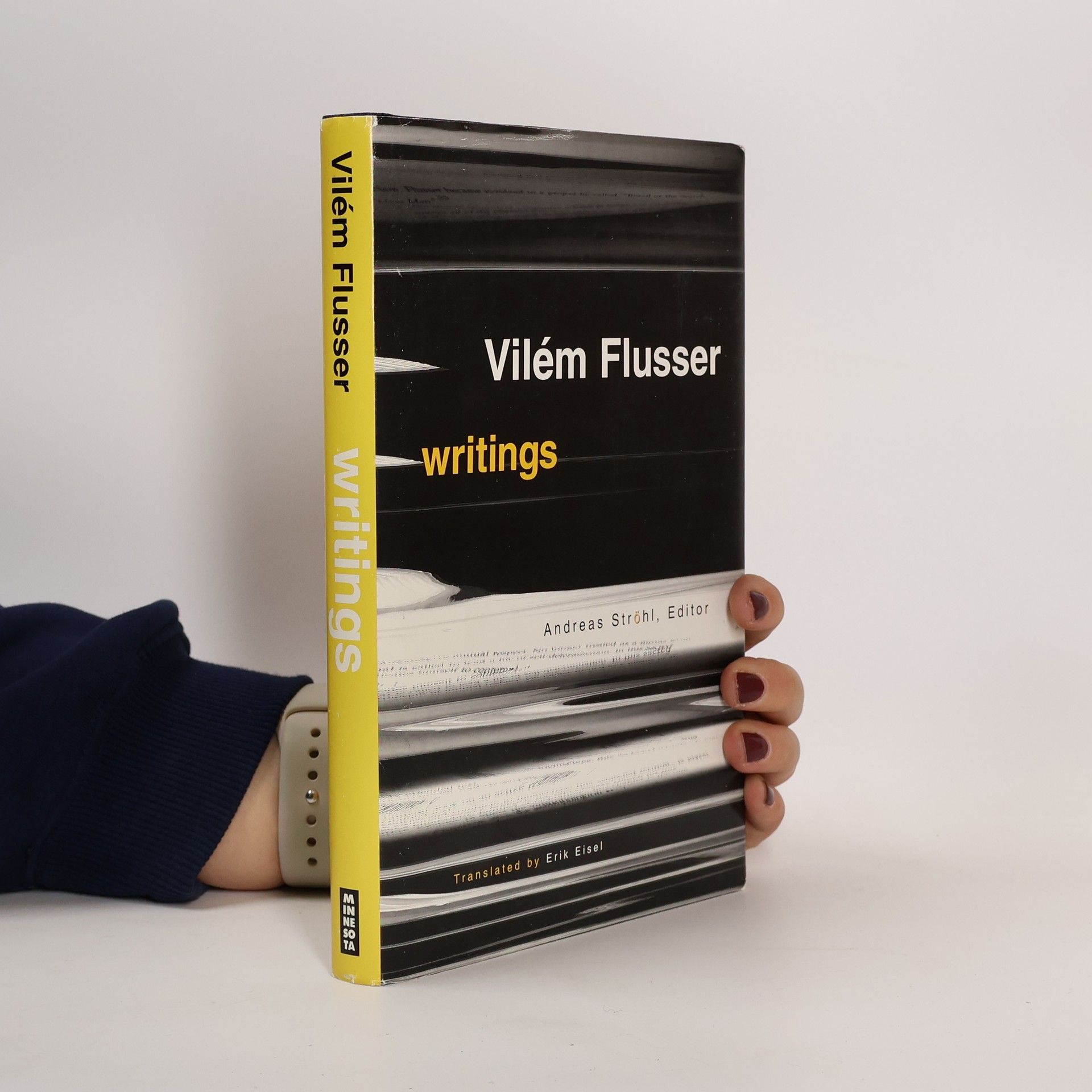

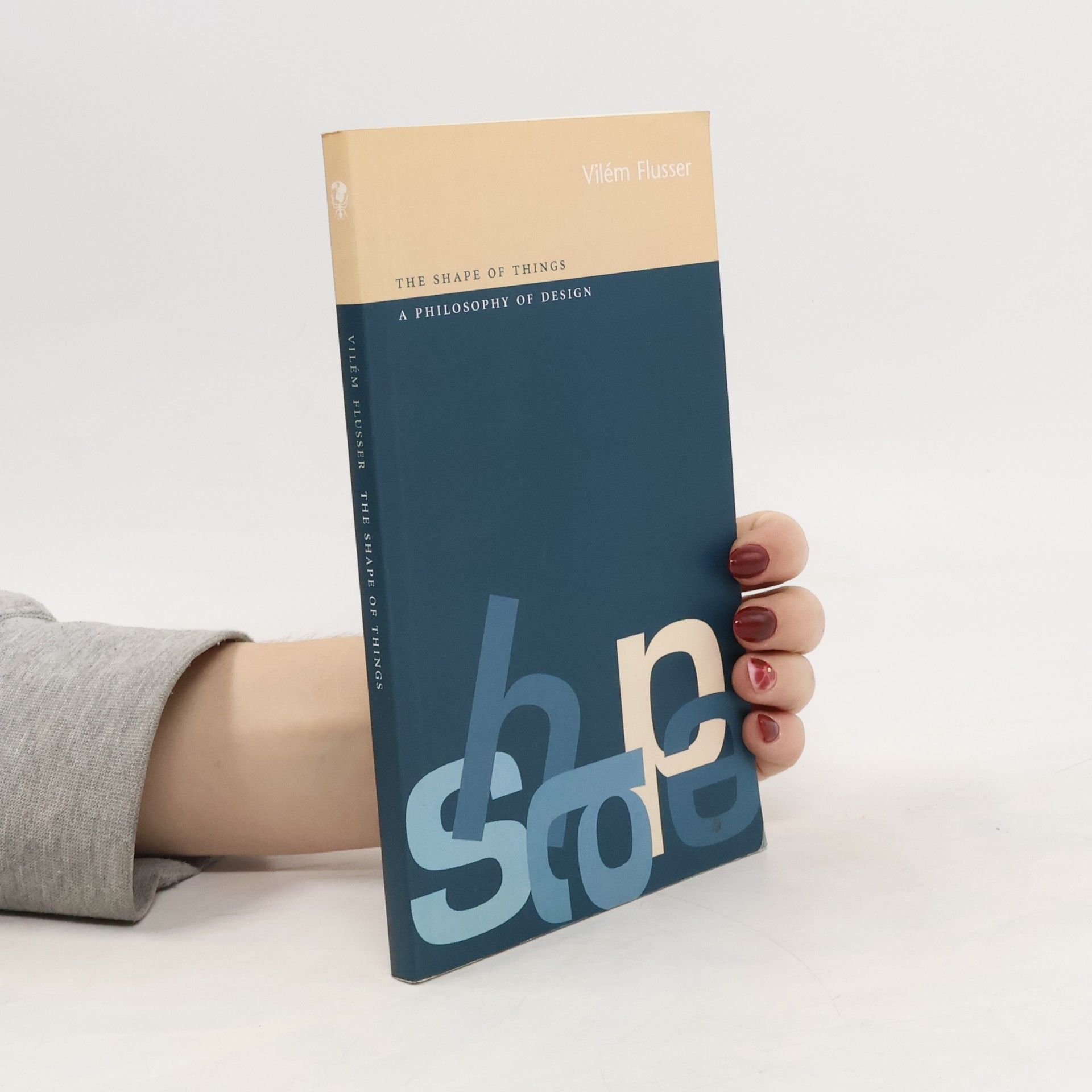
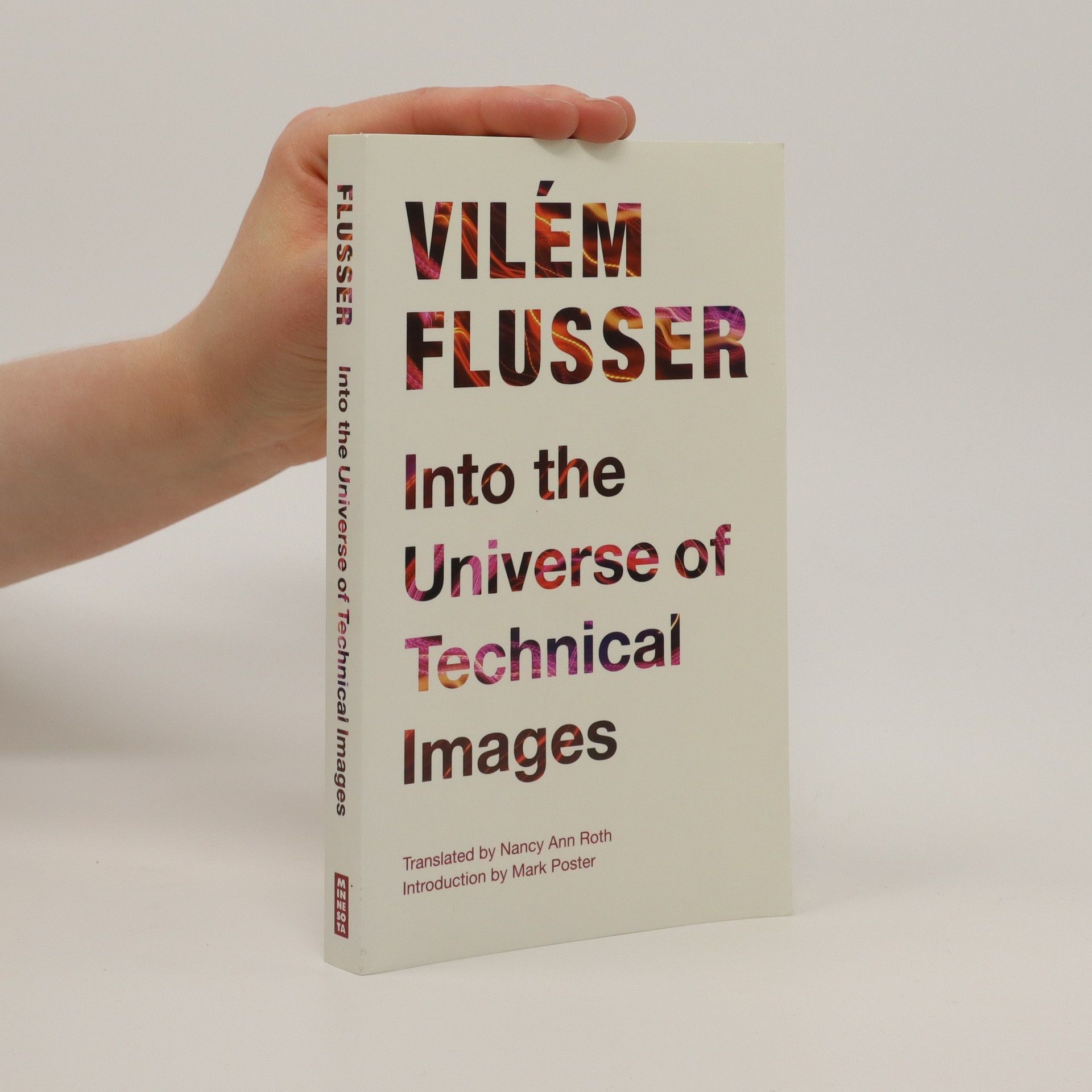

An examination of the promise and peril of digital communication technologies.
This book presents for the first time in English an array of essays on design by the seminal media critic and philosopher Vilém Flusser. It puts forward the view that our future depends on design. In a series of insightful essays on such ordinary "things" as wheels, carpets, pots, umbrellas and tents, Flusser emphasizes the interrelationships between art and science, theology and technology, and archaeology and architecture. Just as formal creativity has produced both weapons of destruction and great works of art, Flusser believed that the shape of things (and the designs behind them) represents both a threat and an opportunity for designers of the future.
Communicology is Vilém Flusser's first thesis on his concepts of technical images and technical imagination. In this foundational text he lays the groundwork for later work, offering a philosophical approach to communication as a phenomena that permeates every aspect of human existence. Clearly organized around questions such as "What is Communication?," "What are Codes?," and "What is Technical Imagination?," the work touches on theater, photography, film, television, and more. Originally written in 1978, but only posthumously published in German, the book is one of the clearest statements of Flusser's theory of communication as involving a variably mediated relation between humans and the world. Although Flusser was writing in the pre-digital 1970s, his work demonstrates a prescience that makes it of significant contemporary interest to scholars in visual culture, art history, media studies, and philosophy.
Writings
- 229bladzijden
- 9 uur lezen
Over ten years after his death, the reputation of Vilém Flusser as one of Europe's most original modern philosophers continues to grow. This is the first English-language anthology of Flusser's work.
Einer der erfolgreichsten Bände aus der absolute-Reihe wird neu aufgelegt – absolute Vilém Flusser erscheint im zweifarbigen, gewohnt benutzerfreundlichen Design. Nach einem Interview aus dem Jahr seines Todes (1991) bildet die von den Herausgebern verfasste Biografie den roten Faden in diesem Kompendium der besten Texte von Vilém Flusser. Fotos, Manuskripte und großzügig typografierte Zitatseiten laden dazu ein, sich dem Inhalt auf nichlineare Weise zu nähern. Ein Zugang, wie er diesem Theoretiker der Schriftkultur gebührt. Flusser hatte viel zu sagen über die Wechselwirkung zwischen Medien und Gesellschaft im digitalen Zeitalter. Bild, Zeichen, Schrift, Design, Architektur: Alles nahm er auf in seine Interpretation unserer Wahrnehmungswelt. Als einer der wenigen Denker sah er in den neuen Kommunikationstechnologien nicht den Untergang des Abendlandes, sondern analysierte nüchtern den Übergang ins post-alphabetische Zeitalter. Die Herausgeber Dr. Nils Röller, Professor am Department Kunst und Medien der ZHdK Zürich, und Silvia Wagnermaier, langjährige Mitarbeiterin im Vilém-Flusser-Archiv Berlin, zeichnen verantwortlich für die Zusammenstellung der Texte und haben die biografischen Essays für den Band verfasst. 'Will man den Apparaten auf die Schliche kommen, muss man versuchen, ihre sture Absurdität gegen sie selbst auszuspielen.'
Ve své knižní prvotině (Língua e realidade, 1963) Vilém Flusser naznačuje cestu k vytvoření jakési celostné filosofie jazyka. Vychází z hypotézy o totožnosti struktury světa a struktury jazyka: skutečnost, definovaná jako souhrn všeho, co jsme s to uchopit a pochopit, je totožná s celkem jazyka, který nám toto chápání umožňuje. Jinak řečeno: není skutečnosti mimo jazyk. Právě díky jazyku a skrze jazyk se chaos „syrových dat“ – pocitů, smyslových vjemů a neartikulovaných prožitků – proměňuje v uspořádaný svět (kosmos), ve skutečnost, kterou lze poznávat, ovládat a přetvářet. Tuto hypotézu se autor snaží systematicky prošetřit a rozvinout všechny její implikace. Kniha, míněná jako příspěvek k navázání rozhovoru mezi filosofií vycházející z logické analýzy jazyka a filosofií existenciální, předznamenala celou řadu Flusserových prací věnovaných fenomenologii jazykové komunikace. České vydání představuje vůbec první pokus o její přeložení do jiného jazyka.
El universo de las imágenes técnicas
Elogio de la superficialidad
En los años ochenta, el filósofo checo-brasileño Vilém Flusser comenzó a rodear con su escritura el núcleo de un cambio de época que no era aún advertido en la vida cotidiana con la fuerza con la que se percibiría varias décadas después. Uno de los síntomas de ese cambio era la progresiva expansión de un nuevo tipo de fenómeno visual: la imagen técnica.
Vom Subjekt zum Projekt ist sicherlich einer der bedeutendsten Texte Flussers: Er faßt die zentralen Motive des Flusserschen Denkens zusammen, dessen Ursprünge sich hier wie in kaum einem anderen Text des Philosophen erkennen lassen. Flusser beschreibt die kulturelle Entwicklung der Menschheit als ein schrittweises Zurückweichen von der Lebenswelt, als zunehmende Entfremdung aus dem Kontext der den Menschen angehenden Dinge. Entscheidend für diese Entwicklung ist das mathematisch-technische Denken der Moderne, das Umkodieren aus Buchstaben in Zahlen: An die Stelle der buchstäblichen Gottesgesetze treten numerische Naturgesetze. Diese Diagnose steht zwar noch durchaus im Einklang mit den Analysen der phänomenologischen Schule, mit Husserl und Heidegger, aber sie führt Flusser im Gegensatz zu diesen nicht zum Kulturpessimismus oder zur Dämonisierung der Technik. Er weist vielmehr auf die neuen Möglichkeiten hin, die sich aus den wissenschaftlich-technischen Transformationen der Kultur der Moderne ergeben. In der Auflösung der sinnhaften Strukturen der Lebenswelt durch die mathematische Abstraktion steckt auch ein Moment praktischer Aufklärung: die Freiheit nämlich, alternative Sinnstrukturen zu entwerfen und uns die Welt und das menschliche Leben aus eigenen Stücken und nach unseren eigenen Gesetzen neu zusammenzustellen.
